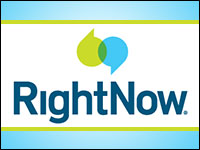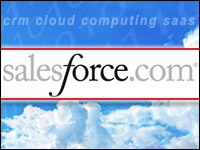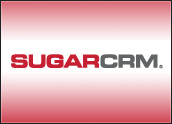
Part 1 of this series on getting started with CRM addresses factors to consider when deciding whether the time is right to take the plunge.Part 2 offers advice on how to choose the right CRM tool.Part 3 provides some guidance on preparing for contract negotiations.Part 4 tackles the all-important step of embarking on an implementation.Part 5 considers how to rescue a project at risk of failure.Part 6 suggests some effective ways to get your sales staff enthusiastic about CRM.Part 7 explores the pros and cons of entrusting system maintenance to the cloud.
A good CRM system can prove invaluable to a small business trying to achieve its business goals. Once that growth starts to occur, though, a small business needs to consider how the CRM tool will scale to meet the new demand.
A small business is ready to think about scaling up if its processes are becoming more complex, Brent Leary, cofounder of CRM Essentials, told CRM Buyer. If a small business adds more people, processes and locations, or it it experiences a greater need for collaboration, these are indications that it may be time to upgrade its CRM tools.
“If the CRM functionality cannot handle the greater scale and more complex workflow, a bottleneck can develop that makes it harder to process business leads,” Leary said. “You have to get a system that allows you to do that.”
Migration Path
It may be possible to meet growing business needs with a system that is already in place, Leary noted. For example, Salesforce.com allows customers to easily upgrade to application editions with more functionality.
“They have a path,” he pointed out.
Voices.com, a voice talent agency, started with Salesforce.com’s entry-level offering and eventually upgraded to the highest level of service, David Ciccarelli, CEO of Voices.com, told CRM Buyer.
“We chose the unlimited edition because it would continue to scale with our growing business,” he said. “Only the unlimited edition enabled us to add as many apps as we wanted with no restrictions.”
Outgrowing a Tool
On the other hand, some CRM tools may not be able to scale with a growing small business, particularly if they specialize in serving the small enterprise. Infusionsoft, for example, focuses on small businesses and recommends that customers move to another vendor if they grow, Leary explained.
Infusionsoft will support only 25 users, Matthew Arndt, president and founder of Turbo Social Media, confirmed, adding that the company made it very clear that this was its niche before he started using it.
“I really hope we outgrow it,” Arndt told CRM Buyer. “That would be a great problem to have.”
Cloud Computing and Web-Based CRM
Web-based CRM solutions and cloud computing will help alleviate some of the growing pains small businesses may experience. In the past, a company using client software would typically have to buy a license to accommodate future growth, John Engates, chief technology officer at Rackspace, told CRM Buyer. That used to be a barrier for small businesses because it was prohibitively expensive.
With a Web-based solution, however, a company does not have to purchase capacity for 500 people until it actually has 500 people, he explained. It pays more only as it grows more.
Web-based solutions are cheaper to invest in early and do not require a huge outlay of cash, while client solutions are more costly to scale up, noted Engates.
Rackspace hosts Relenta, an upgradeable Web-based CRM tool, and other applications for both large and small companies. It is becoming more common for applications to be delivered over the Web, noted Engates.
“The applications we run are mostly Web-based. That’s the way people like to consume applications nowadays,” he pointed out.
This trend should continue in the future to the point when companies will no longer require their own servers, predicted Engates.
Many options already exist for Web-based services, and these solutions can save small businesses money while providing them with a level of service they may not be able to achieve on their own, he said.
For example, many small businesses may not have the resources for security and backup, which usually requires another in-house server and can be very expensive, Engates pointed out. A service provider can spread that cost among many customers so the cost is lower per customer. It also has dedicated staff to perform those operations and documented processes in place.
“It’s more professional, more focused,” Engates maintained.
Research the Scalability Factor
Small businesses should research a potential CRM tool and look for Software as a Service capability, Engates advised. They should also look for payment models that depend on such things as employee growth.
“You pay as you scale,” he said. Such a model allows small companies to get started more quickly.
Choosing a CRM solution that scales with company growth will help a small business meet its needs for future opportunities, concurred Voices.com’s Ciccarelli. His company started with NetSuite in 2004 but outgrew it in just a year. It then switched to Salesforce.com, which can handle its customer base of more than 100,000 people.
Careful research will also help small businesses weed out service providers that will not act in their best interests. Some vendors might do anything to get customers, so the small business owner should ask about scalability issues, Arndt advised. It’s important to understand how much growth the system will support, how easy it will be to get the data out of the CRM system, and how the vendor will react.
Focus on Data and the Database
Most providers will make it easy for customers to retrieve their data, but small businesses should ask questions about this when choosing a provider, recommended Engates. They need to pick a reputable company that they can trust.
The data always belongs to the customer, Engates emphasized. It should not be held hostage. A small company should fully understand the provider’s policies before it signs up.
A small business also needs to pay special attention to the data format, Engates advised. It will not be any good if it is unusable, so the data should be exportable in a standard, common, supported format.
Another important factor to consider is the database itself, Engates pointed out. Databases frequently are the most difficult piece of the system to scale, but they are also one of the most vital.
“It’s where all the crown jewels are stored,” he noted.
Most companies use Microsoft SQL Server, MySQL, or Oracle. A small business should choose a CRM tool that uses a well-supported database such as these three, cautioned Engates, and should be wary of a service that uses an unknown or proprietary database.
Growing Need for CRM Tools
Now is the time for small businesses to become savvy about CRM systems and the issues — such as scalability — that surround them, said CRM Essentials’ Leary.
More people need to plan for this, because more small businesses will require CRM solutions, he said, and “this is going to be a growing issue.”






















































Good detailed information about a web based CRM. More and more companies are moving towards web based systems, which cuts down costs while allowing employees to access data anywhere. intelecrm is another application to ad to your list. The online CRM solution has a pricing model for unlimited users starting at $20/month.
Best!